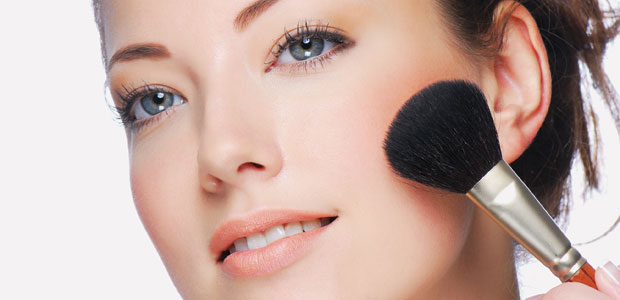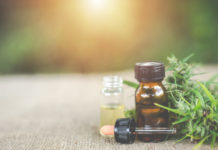
Natural cosmetics are better for the environment and your health. But natural products require a little extra care because they lack chemical preservatives.
The following tips will help you get the most longevity out of your favourite products.
Toss it
Just like food, cosmetics have a shelf life. Some products have expiry dates stamped right on them while others follow the European “period after opening” system where products have an icon of an open jar with a number and the letter M. For example, “6M” means the product is best when used within six months.
No expiry date or icon on your product? No worries! Six months is the general rule for most natural cosmetics, except for mascara, which only lasts about three months because of the possibility of eye infections. If you ever get an eye infection, throw away all eye makeup used during that period.
If a product changes colour, consistency, or smell, throw it out regardless of its expiry date.
Keep it clean
Cleanliness is key when using natural cosmetics, so wash your hands thoroughly before applying makeup, keep all containers clean, and never let an applicator touch an unclean surface.
Be sure to clean your makeup brushes at least once a month with a natural brush cleaner, found at specialty beauty stores and health food stores.
For liquid products, rethink your applicators: although disposable applicators may be hygienic, single-use plastics and foam aren’t kind to Mother Nature. Instead, use disposable applicators made from biodegradable substances such as organic cotton—available at beauty stores and natural health food stores.
Tip: don’t pump your mascara, as it traps air and makes it dry out faster. Never add saliva or water if it has become dry.
Sharing is not caring
Sharing makeup and applicators increases the risk of passing bacteria from product to product.
Be especially wary of testers at makeup stores, as you don’t know how long they’ve been there or how previous customers have treated them. If you must, test makeup on the back of your hand using a clean (and biodegradable) disposable applicator.
On the go
Because it can be difficult to wash your hands when you’re out and about, it’s a good idea to avoid any products that you touch directly. Instead, use lip gloss with an applicator wand, and hand creme that comes in a tube rather than a jar.
Makeup should not be stored at or above 85 F (29 C), so never leave your lip gloss in a hot car!
Finally, although it may seem to buy you some extra time in the morning, don’t apply makeup in traffic or on transit—sudden bumps may cause eye makeup and applicators to get in your eye, which can cause injury or infection.
What’s in natural cosmetics?
These ingredients are used as natural alternatives to preservatives, antiseptics, or antibacterials:
- borax
- citric acid from orange and lemon zest
- honey
- lavender
- rosemary
- rose oil
- peppermint
Why go natural?
The slightly longer shelf life of conventional cosmetic products comes at a heavy price, as many ingredients are potential endocrine disruptors and carcinogens. According to the David Suzuki Foundation, the “dirty dozen” cosmetic ingredients include:
- BHA and BHT
- coal tar dyes
- DEA (also MEA and TEA)
- dibutyl phthalate
- formaldehyde-releasing chemicals such as DMDM hydantoin, diazolidinyl urea, imidazolidinyl urea, methenamine, and quarternium-15
- parabens
- parfum or “fragrance”
- PEG compounds
- petrolatum
- siloxanes
- sodium laureth sulfate
- triclosan
To learn more about these ingredients, visit davidsuzuki.org/issues/health/science/toxics/dirty-dozen-cosmetic-chemicals/.
To rate or review your current cosmetic brand, visit the EWG’s Skin Deep Cosmetics Database: ewg.org/skindeep.





